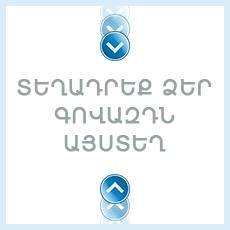Դիպլոմային The use of poems and songs in teaching english in the elementary school
Բովանդակություն
Introduction
Chapter I. The Peculiarities of Teaching English in the Elementary School
1.1 The Child as a Language Learner
1.2. Planning Teaching English
Chapter II. The Methods of Teaching English in the Elementary School
2.1. Teaching the Four Basic Language Skills in the Elementary EFL Classroom
2.2. The Use of Modern Methods for Teaching English in the Elementary School
Chapter III. Teaching English through Songs and Poems in the Elementary School
3.1. The Role of Songs and Rhymes in Language Teaching
Teaching English in the Elementary EFL Classroom. A Textbook Analysis
Conclusion
Հատված
Learning a foreign language is valuable at any age because it provides a possibility of practical communication. It also cultivates broader perspectives and insights into other cultures and enables people to gain insights into their own culture and language through contrast.
The subject “English” is described as the most important of all school subjects in many countries. However, it is also the most consistently controversial and debated subject. The history of English is a history of constant changes which inevitably makes teaching it a special kind of challenge.
Teaching English from a linguistic perspective is an exciting and complex challenge, indeed. It suggests that all elementary and secondary English teachers would do well to take linguistics at an advanced level. However, this is simply not the case.
Although there has been some increase in people entering the profession with some level of linguistic qualification, the great majority of the elementary and secondary English specialists choose English because of their love of and passion for the English language and literature. Many of them further define themselves as having always loved working with children. The possession of a degree in English can mean many different things, but for most English teachers it means the exclusive study of the English language and the young learners՚ psychology.
Գրականության ցանկ
1. Andrew Goodwyn and Jane Branson “Teaching English. A Handbook for Primary and Secondary School Teachers,” Routledge Falmer, New York, 2005.
2. Andrew Wright, David Betteridge and Michael Buckby “Games for Language Learning,” Cambridge University Press, New York, 2006.
3. Cheryl Miller Thurston “Ideas That Really Work! Activities for English and Language Arts,” Cottonwood Press, Colorado, 2009.
4. Corony Edwards and Jane Willis “Teacher՚s Exploring Tasks in English Language Teaching,” Palgrave Macmillan, New York, 2005.
5. David Wray, Jane Medwell, Louise Poulson and Richard Fox “Teaching Literacy Effectively in the Primary School,” Routledge Falmer, New York, 2002.
6. Denis Hayes “Learning and Teaching in Primary Schools,” Learning Matters Ltd., Exeter, 2009.
7. Denise D. Nessel and Carol N. Dixon “Using the Language Experience Approach with English Language Learners,” Corwin Press, Thousand Oaks, 2008.
8. Dominic Wyse “Becoming a Primary School Teacher,” Routledge Falmer, London and New York, 2002.
9. Elfrieda H. Hiebert and Michael L. Kamil “Teaching and Learning Vocabulary. Bringing Research to Practice,” Lawrence Erlbaum Associates Inc., New Jersey, 2005.

